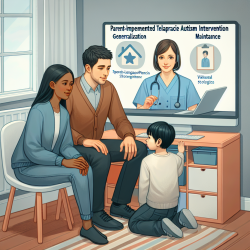Introduction: A New Era in Understanding Phelan-McDermid Syndrome
Phelan-McDermid Syndrome (PHMDS) is a complex neurodevelopmental disorder that presents a wide range of challenges, including developmental delays, speech impairments, and autistic behaviors. Recent research has unveiled a groundbreaking discovery in the form of DNA methylation epi-signatures, which can significantly enhance our understanding and treatment of PHMDS.
The Study: Unveiling Molecular Subtypes
A pivotal study titled "DNA methylation epi-signature is associated with two molecularly and phenotypically distinct clinical subtypes of Phelan-McDermid syndrome" has revealed crucial insights. By analyzing genome-wide DNA methylation profiles in 22 individuals with PHMDS, researchers identified a novel DNA methylation epi-signature that distinguishes two distinct clinical subtypes.
The study involved 11 individuals with large deletions (2 to 5.8 Mb) and 10 with small deletions or intragenic variants in the SHANK3 gene. The critical finding was the identification of the BRD1 gene region as responsible for the PHMDS epi-signature, leading to different metabolomic profiles and indicating two distinct subtypes of the syndrome.
Implications for Practitioners
For practitioners, these findings offer a transformative opportunity to enhance diagnostic accuracy and tailor interventions more effectively. Here’s how you can leverage this research:
- Enhanced Diagnosis: Utilize DNA methylation profiling to differentiate between the two subtypes of PHMDS, leading to more precise diagnoses.
- Targeted Interventions: With a better understanding of the molecular subtypes, customize therapeutic approaches to address the specific needs of each subtype.
- Further Research: Encourage further research into the BRD1 gene and its role in PHMDS to uncover additional therapeutic targets.
Why This Matters
The ability to distinguish between molecular subtypes of PHMDS not only enhances diagnostic precision but also opens new avenues for personalized therapy. This approach aligns with the growing emphasis on data-driven decisions in healthcare, ensuring that interventions are backed by robust scientific evidence.
Conclusion: A Call to Action
As practitioners, it is imperative to stay abreast of such advancements and integrate them into practice. By doing so, we can significantly improve outcomes for children with PHMDS, providing them with the targeted support they need to thrive.
To delve deeper into this groundbreaking research, I encourage you to read the original research paper: DNA methylation epi-signature is associated with two molecularly and phenotypically distinct clinical subtypes of Phelan-McDermid syndrome.










